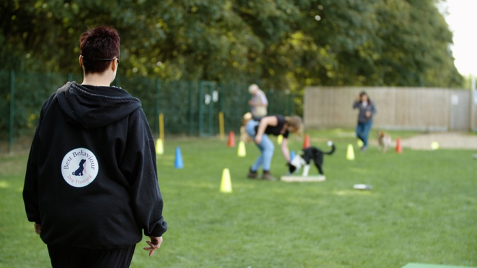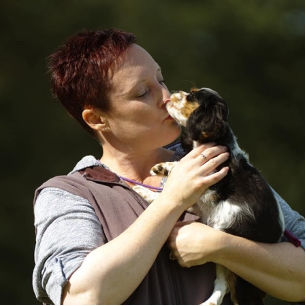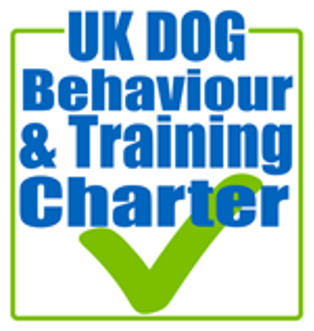
Choosing a dog trainer can be a minefield. With fancy websites, and the power of social media its’ hard for dog owners to know what to look for and what questions to ask of their potential dog trainer.
You may not be aware, but the UK training and behaviour industry is unregulated, which means that anybody can set themselves up as a dog trainer or behaviourist and claim to help you with your dog. This brings a whole host of problems ranging from poor service, bad advice and potentially damaging and life- limiting information for the dog.
Moreover, the stakes can be quite high, when we’re dealing with dogs that are aggressive or fearful. This is why it is so important to make sure that you and your best friend, have the best possible trainer from the outset. Let’s take a look at what’s available to you and your dog.
Before we go into how to find a trainer, let’s take a look at the methods that people use to train dogs. Simply put, we have three different methods of training dogs.
Method one is using punishment-based techniques which results in your dog being fearful of the consequences. An example could be training a sit by pushing the bottom to the floor or training lead walking by yanking the dog around the neck, or worse, using shock and prong collars. Not only does this make the dogs scared of the consequences. It also damages your relationship and let’s face it we all get a dog to be part of our family, so why would we want to hurt them in the name of training.
“The great thing about positive training is you can be clear with your instructions and guidance whilst building a wonderful bond with positive training and gaining the desired result.”
Method two is balanced training. Balanced training sounds okay, doesn’t it? But sadly, this has its drawbacks because in this training a mix of punishment based and reward-based techniques are used. This means, on one hand, you’ll be telling the dog off, and then when the dog gets it right, you’ll be giving the dog praise. Imagine going to work and being told off for something you’ve done, and then all of a sudden being told, you’ve done a good job. How confusing would that be for you? Not only could it be confusing, but it could also increase frustration and anxiety.
Pick carefully when choosing a trainer, as sometimes the terminology and the phrases used in the training industry can be quite misleading. The term balance would indicate that it’s good, but unfortunately in our eyes as positive trainers, we don’t believe that’s the case. Science tells us that using any type of punishment for your dog is not only harmful, but it’s also cruel and unnecessary. This brings me on to the last type of training.
Method three is positive reward training and the type of training we endorse. In this type of training, the trainer will have the skills to set your dog up to be successful so that means looking at the environment and other factors that involve your dog’s behaviour and setting them up to succeed. When we’re training our dogs, we set them up in the best possible environment so that they can succeed and be challenged at the same time.

We start our dogs off by showing them exactly what we want them to do. The great thing about positive training is you can be clear with your instructions and guidance whilst building a wonderful bond with positive training and gaining the desired result.

Those are the three techniques and we recommend the positive reinforcement technique would be the only way you would probably want to train your dog. Why on earth would you get a dog to hurt it or cause it harm or distress, you wouldn’t.
Now you know what type of training to look for the next challenge is how would you find a genuinely qualified trainer. With the industry unregulated traditionally it was made up of various membership organisations each working their codes of practice, then in 2020, a group of leading organisations formed together, creating the UK behaviour and training charter. The charter involves some self-regulation and improves the animal and dog welfare industry.
The Charter brings together organisations behind a shared vision of standards and accountability for the sector. The welfare of dogs lies at the heart of its mandate, making a clear representation as to what is and isn’t acceptable in a modern, progressive profession with explicit assurance to the public, other professional bodies and government agencies that signatory organisations are committed to open, transparent and robust complaints and grievance procedures that can be supported by independent arbitration if need be.

The charter symbol gives assurance and accountability to the public and other bodies and organisations that belong to the charter. Members are Animal Centred Education, APDT, CAPBT, ICB, IMDT, Association of Into Dogs, The UK College of Scent Dogs, The Pet Professional Guild and Victoria Stilwell Academy. This brings together a wonderful group of individual organisations that have one common goal to work together to improve standards in training and welfare for our pets.

What questions should I ask a dog trainer?
What qualifications do they have? – Ideally educated to degree level in dog behaviour, with accreditation to prove practical skills.
What accreditations do they have? – Ideally one of these – IMDT, CAPBT, ICB, UKCSD, APDT, VSPDT
What methods do they use? Only accept positive reinforcement trainers
Can you support me and my dog now and ongoing? Good trainers offer long term training programs and lifelong support.
Another point worth making is if your dog has a behavioural problem, rather than a training need, such as aggression, separation anxiety, resource guarding you need a behaviourist. There is a big difference in education level between a trainer and behaviourist and again a behaviourist should be at least level 5 in their education with a certified or accredited qualification. Be vigilant of bogus websites that claim to be directories of dog trainers or those offering badges of approval with no actual accreditation behind them.
If this has made you think twice before hiring a trainer or given you something to check we are happy for you, as this could change the outcome to a very positive one if you have a dog that needs help with their training.
Our Expert
My name is Zoe Willingham and I am a qualified, independently accredited dog trainer & behaviourist.
I personally teach all the classes and behaviour consultations as I believe your dog is a part of your family and it’s really important to me that I know you all personally. I also have a fabulous team of assistant trainers that are present at classes.
For more information: www.bestbehaviourdogtraining.co.uk
